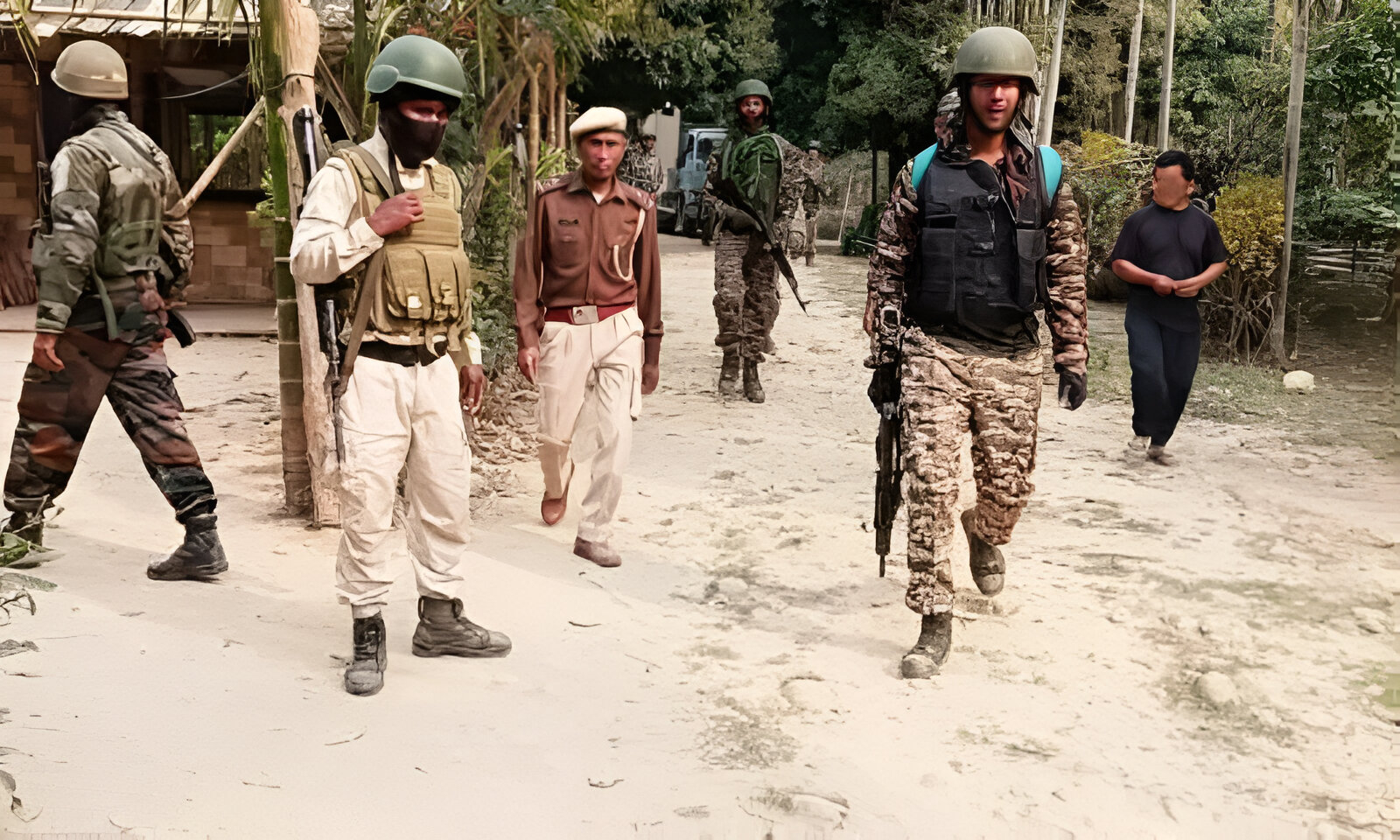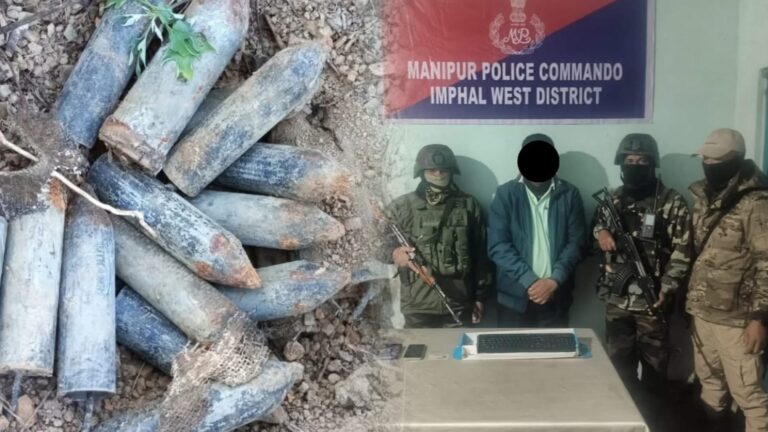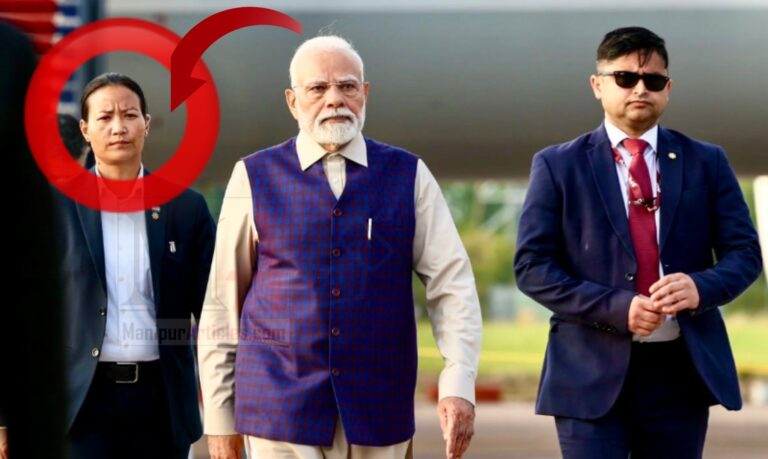Manipur KYKL & PREPAK Cadres Arrested Near Indo-Myanmar Border: Strengthening Security on the Frontier
Summary of the News Article
On March 20, 2025, Assam Rifles apprehended two active members of underground groups along the Indo-Myanmar border in Manipur. The operation led to the capture of Laishram Tomba Singh (27) from the People’s Revolutionary Party of Kangleipak (PREPAK) and Yumnam Roshan Meitei (33) from the Kanglei Yawol Kanna Lup (KYKL). A significant cache of arms and ammunition was also seized during the operation.
In-Depth Analysis
Introduction
Manipur, a picturesque state in northeastern India, has long been a mosaic of diverse cultures, traditions, and histories. However, beneath its serene landscapes lies a complex web of insurgent activities that have shaped its socio-political fabric for decades. The recent arrest of cadres from KYKL and PREPAK near the Indo-Myanmar border sheds light on the ongoing challenges the state faces in its quest for peace and stability.
Historical Context of Insurgency in Manipur
To understand the significance of these arrests, it’s essential to delve into the roots of insurgency in Manipur. Post-independence, several ethnic groups in the state felt marginalized, leading to the rise of insurgent outfits demanding autonomy or independence. Among these, KYKL and PREPAK have been prominent.
Kanglei Yawol Kanna Lup (KYKL)
Established in 1994, KYKL’s primary objective has been to reform Manipuri society by eradicating corruption and drug abuse. Over time, their methods became increasingly militant, involving extortion, kidnappings, and armed confrontations. Their ideological stance is rooted in preserving the Meitei culture and establishing a sovereign state.
People’s Revolutionary Party of Kangleipak (PREPAK)
Founded in 1977, PREPAK aims to restore Manipur’s independence, which they believe was unjustly annexed by India in 1949. Their activities have included armed attacks on security forces, bombings, and other forms of militant resistance. Both groups have been proscribed by the Indian government due to their insurgent activities.
Geopolitical Significance of the Indo-Myanmar Border
Manipur shares a 398 km border with Myanmar, characterized by porous terrains and dense forests. This border has historically been exploited by insurgent groups for movement, arms trafficking, and establishing training camps. The lack of stringent border controls has made it a hotspot for militant activities.
The Recent Operation: A Closer Look
The operation leading to the arrest of the KYKL and PREPAK cadres was a testament to the intelligence and coordination capabilities of the Assam Rifles. Acting on specific inputs, the forces conducted a swift operation near border pillar number 76.
Profiles of the Arrested Cadres
- Laishram Tomba Singh (27): Hailing from Wangjing in Thoubal District, Singh has been an active member of PREPAK. His involvement in several insurgent operations made him a significant target for security forces.
- Yumnam Roshan Meitei (33): Originating from Wabagai Yangbi Mamang in Kakching District, Meitei’s association with KYKL has been marked by his participation in various militant activities.
Seized Arsenal
The operation led to the recovery of a substantial cache of arms and ammunition, including:
- One 5.56 mm Light Machine Gun (LMG)
- Three LMG magazines
- One LMG magazine drum
- 194 rounds of 5.56 mm ammunition
- One 7.62 mm AK-56 rifle
- Two AK magazines
- 125 rounds of 7.62 mm ammunition
- Other military gear and communication devices
The seizure of such weaponry underscores the militants’ preparedness and the potential threat they posed to regional stability.
Implications of the Arrests
These arrests are more than just tactical victories; they have broader implications:
- Operational Disruption: Removing active cadres disrupts the operational capabilities of these insurgent groups, leading to potential intelligence gains and weakening their organizational structure.
- Morale Impact: Such operations send a clear message to insurgent outfits about the heightened vigilance and capabilities of security forces, potentially deterring future recruitments.
- Boost to Civilian Confidence: Successful operations enhance public confidence in security agencies, fostering better cooperation and intelligence sharing from local communities.
Challenges in Counter-Insurgency Operations
Despite successes, several challenges persist:
- Porous Borders: The extensive and difficult-to-monitor Indo-Myanmar border facilitates insurgent movements and arms trafficking.
- Local Support: Some insurgent groups enjoy local support due to ethnic affiliations or grievances against the state, complicating counter-insurgency efforts.
- Resource Constraints: Continuous operations strain the resources and morale of security forces, necessitating sustained support and strategic planning.
The Role of Assam Rifles
The Assam Rifles, often dubbed the “Sentinels of the Northeast,” have been instrumental in maintaining security in the region. Their deep understanding of the local terrain, culture, and dynamics has been pivotal in counter-insurgency operations. Their dual role in border security and counter-insurgency makes them uniquely positioned to tackle the challenges in Manipur.
Challenges Ahead: The Long Road to Sustainable Peace
While the arrests mark a significant victory, they also highlight the long road ahead. Here are some of the challenges that still need to be addressed:
- Preventing Re-emergence:
Insurgent networks are often deeply entrenched and resilient. Continuous monitoring and proactive measures are necessary to ensure that these groups do not regroup or re-emerge in new forms. - Addressing Root Causes:
Socio-economic disparities, political grievances, and local disillusionment are among the factors that fuel insurgency. Sustainable peace can only be achieved by addressing these underlying issues through inclusive development and dialogue. - Strengthening Cross-Border Mechanisms:
The porous nature of the Indo-Myanmar border means that international cooperation is key. Enhanced coordination between India and Myanmar, along with robust border management strategies, will be vital in preventing cross-border insurgency. - Balancing Security and Civil Liberties:
While stringent measures are necessary, it is equally important to ensure that security operations do not trample on civil liberties. A balanced approach that respects human rights while ensuring safety is essential for long-term stability.
Looking to the Future: Prospects for a Safer Manipur
The arrest of the KYKL and PREPAK cadres is a significant step toward curbing insurgent activities along the Indo-Myanmar border. However, this is just one piece of a much larger puzzle. Looking forward, several factors will determine the long-term impact of such operations:
- Ongoing Vigilance:
The security forces must remain ever-vigilant, continuously adapting their strategies to counter emerging threats. This includes investing in modern technology, training, and cross-border intelligence sharing. - Holistic Development:
True security is achieved not only through policing but also through socio-economic development. Infrastructure projects, educational initiatives, and community empowerment programs will all contribute to a more stable and prosperous Manipur. - Strengthened Governance:
Transparent and accountable governance can help bridge the gap between the state and its citizens. By addressing local grievances and ensuring that development reaches every corner of the state, the government can build lasting trust with the people. - Regional Cooperation:
Manipur’s challenges are intertwined with broader regional dynamics. Strengthening ties with neighboring states and countries, and fostering collaborative efforts against insurgency, will be essential in creating a unified front against cross-border threats.
Conclusion
The recent arrest of KYKL and PREPAK cadres near the Indo-Myanmar border is not just a headline—it’s a crucial milestone in Manipur’s ongoing struggle for peace and security. This operation, marked by its precision and commitment, highlights the resilience of law enforcement in a region that has long grappled with insurgency. While challenges remain, every successful operation reinforces the hope that a safer, more prosperous future is within reach.
As we reflect on these developments, it’s clear that the road to sustainable peace is paved with vigilance, cooperation, and a commitment to addressing both immediate threats and their underlying causes. With the support of local communities, technological advancements, and cross-border collaboration, Manipur is well on its way to reclaiming its identity as a region where progress and stability go hand in hand.
Frequently Asked Questions (FAQs)
- What led to the arrest of the KYKL and PREPAK cadres near the Indo-Myanmar border?
- The arrest was a result of meticulous intelligence gathering and a well-coordinated police raid, targeting areas known for insurgent activities along the border.
- How do these arrests impact regional security in Manipur?
- By dismantling key elements of the insurgent network, these arrests help disrupt militant operations, bolster border security, and restore public confidence in law enforcement.
- What are the main challenges faced by security forces in this region?
- The rugged terrain, porous border, and deep-rooted socio-economic issues make surveillance and sustained counter-insurgency efforts challenging for the security forces.
- How can local communities contribute to improving security along the border?
- Community collaboration is crucial. Residents can provide valuable information, participate in local awareness programs, and support initiatives aimed at boosting economic development, thereby reducing the appeal of insurgency.
- What measures are being taken to ensure the long-term stability of the region?
- Authorities are focusing on a combination of strict law enforcement, technological integration, cross-border cooperation, and socio-economic development programs to create a sustainable framework for lasting peace.






